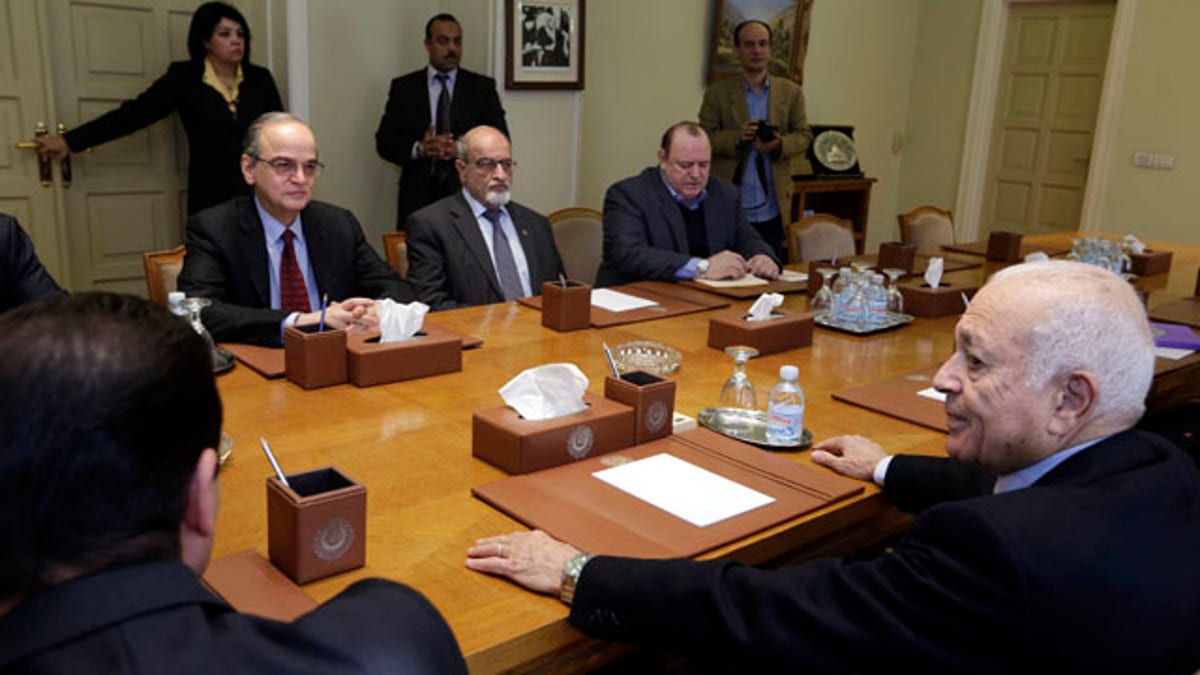
Dec. 27, 2014: The Arab League's Secretary-General Nabil Elaraby, right, meets with Hadi Bahra, the head of the Syrian National Coalition, the country's main political opposition group, left, and Haitham al-Maleh, a member of the group, second left, at the league's headquarters in Cairo. (AP Photo/Amr Nabil)
DAMASCUS – Syrian state-run TV said Saturday that the government is prepared to take part in peace talks hosted by Russia next month, but the unnamed foreign ministry official it cited suggested the scope of the negotiations would be limited to "preliminary" talks meant to pave the way for a conference in Syria itself.
The official was quoted as saying the government was "ready to participate in preparatory, advisory meetings in Moscow" that would "answer the aspirations of Syrians to find an exit from the crisis."
Russia's Foreign Ministry had said Thursday that it hoped to host peace talks after Jan. 20 between the Syrian government and its fractured opposition. The nearly four-year conflict has claimed over 200,000 lives, displaced a third of Syria's population, and nurtured an extremist group, the Islamic State, which now rules over vast swaths of Syria and neighboring Iraq.
Russia is a staunch ally of Syrian President Bashar Assad. The Western-backed Syrian opposition has insisted that any negotiated settlement include the formation of a transitional governing body with full executive powers, a demand rejected by Assad's government.
Hadi Bahra, the head of the Syrian National Coalition, the main Western-backed opposition group, said it had not yet made a decision on the talks.
"We can't give a response to something that's still hanging in the air," Bahra said. "There are no invitations, and what are they inviting us to? Is there a negotiations framework? Who will come? What is the aim?"
Russia has said that the first stage of talks would include members of both the government-tolerated internal opposition and opposition groups based abroad. In the next stage, they would be joined by Syrian government representatives.
But the Syrian government official was quoted as saying that "the preliminary, consultative meetings in Moscow are aimed at (finding) agreement on convening a dialogue conference between the Syrians themselves, without any foreign intervention."
It is unclear whether Syria's opposition leaders in exile or rebel leaders would attend a conference in a government-controlled part of the country — particularly one that only aims to create dialogue.
